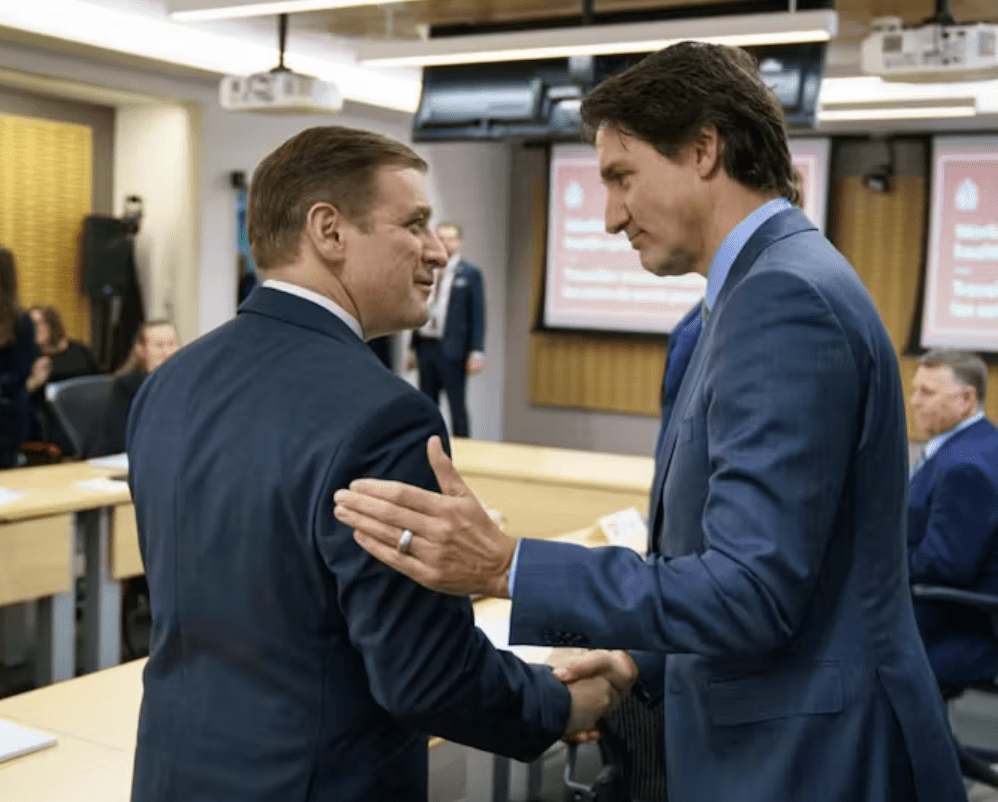If Canadians want to find an example of a Liberal politician who cares about affordability, they should look to St. John’s, not Ottawa.
Time and time again, Newfoundland and Labrador Premier Andrew Furey has stood on the side of taxpayers.
The latest example is his government’s decision to extend its 8.05 cent per litre gas tax cut for another year.
The gas tax cut has been in place for 21 months and has saved the average two-car Newfoundland and Labrador family more than $800. Another 12 months of lower gas prices will see family savings soar to more than $1,000.
Furey first announced the temporary tax cut in June 2022 and has now extended it twice.
The Furey government has also spoken out strongly about the detrimental impact of the carbon tax on Newfoundlanders and Labradorians.
In criticizing the Trudeau government’s carbon tax late last year, Furey noted “there is no subway” for his constituents to take as an alternative to the ever-increasing costs of driving a car to get to work or to bring kids to school.
That comment was a jibe at the infamous remarks federal Finance Minister Chrystia Freeland made when encouraging Canadians who can’t afford to pay the carbon tax to bike or take transit.
Furey noted if rural Canadians don’t have other transit options – and many don’t – then “the fundamental premise on which the [carbon tax] is based is flawed.”
Furey was also a leader in calling on Trudeau to take the carbon tax off all home heating, noting repeatedly that heating one’s home in Canada in the winter is not optional.
Under pressure, Trudeau finally did so through a temporary suspension of the carbon tax on home heating oil, which is a popular method of home heating in Atlantic Canada, but not in other regions of the country.
To Furey’s credit, he continued to call on the federal government to offer relief to Canadians who don’t use furnace oil for home heating.
Juxtapose that against the policies of Prime Minister Justin Trudeau.
Without campaigning on it, Trudeau sprung a carbon tax on Canadians in 2019. He’s increased it every year since. And he plans to keep jacking it up every year until 2030.
Trudeau has tried to sell his policies by claiming most Canadians are getting more money back from carbon tax rebates than they pay in carbon taxes. Many of Trudeau’s allies have suggested that somehow the carbon tax actually is an affordability measure.
But the Parliamentary Budget Officer has laid out the truth: the average Canadian family is losing money from the carbon tax, big time.
The average Newfoundland and Labrador family lost $347 from the carbon tax last year, even after the rebates. That’s set to climb to $1,316 a year by 2030.
For years, Trudeau told us families would be better off with the carbon tax. But after pressure from Furey and other Atlantic Canadian politicians, he temporarily removed the carbon tax on home heating oil for the next three years.
If that’s not a mea culpa that the carbon tax makes life less affordable, then Santa Claus and the Easter Bunny must be real.
The broader contrast between Furey and Trudeau is their approach to cost of living. Furey looks at what’s taking cash out of families’ wallets – gas and carbon taxes – and tries to lessen that burden by fighting for lower taxes. Trudeau’s solution to make life more affordable appears to be more taxes, more spending and more debt.
The bottom line is that Trudeau, who is sinking in the polls and faces frustrated taxpayers from coast to coast, should learn a thing or two from Furey. Canadians want life to be more affordable, and that means lowering the tax burden, not increasing it.
Jay Goldberg is the Interim Atlantic Director of the Canadian Taxpayers Federation






